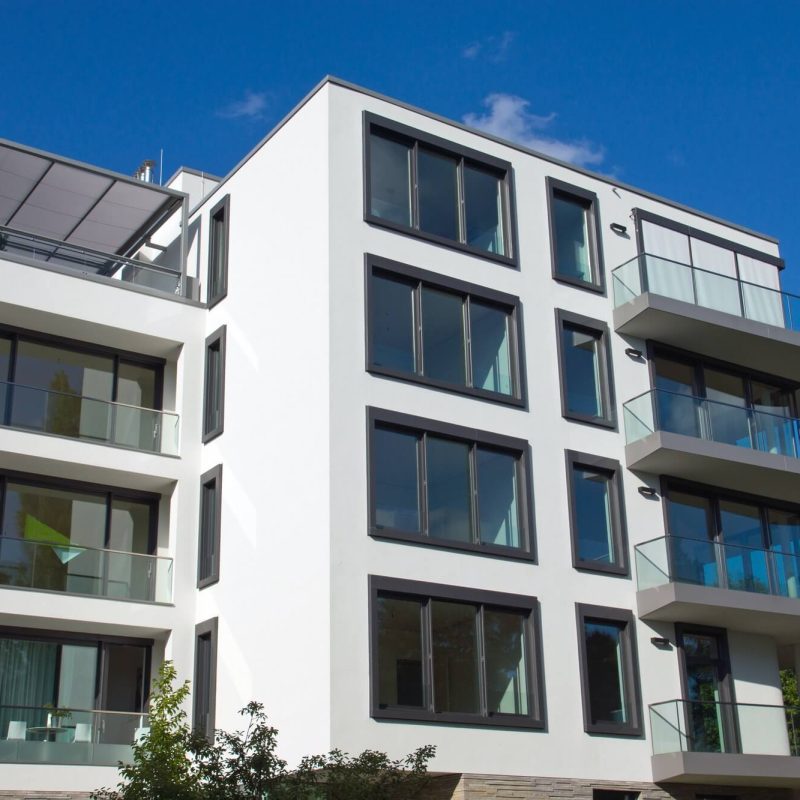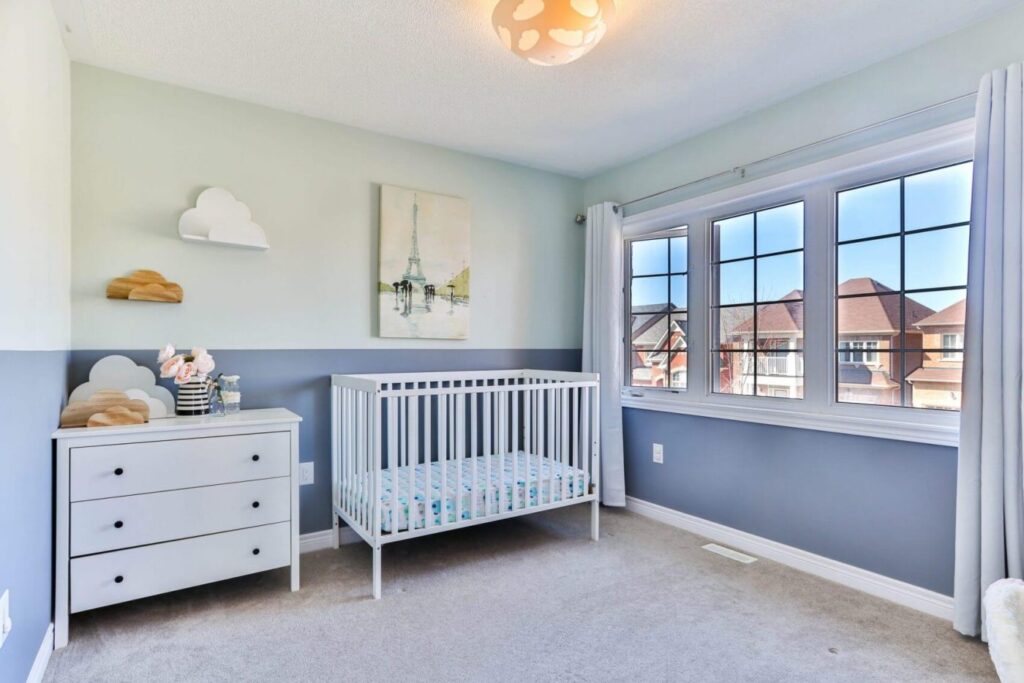
Navigating Commercial Real Estate: Buyer’s Guide
Commercial real estate is a lucrative but complex market, offering opportunities for long-term financial gain, rental income, and asset appreciation. However, investing in commercial properties requires more knowledge, due diligence, and strategic planning than residential real estate. At The8Venue, we strive to empower investors with the tools and guidance they need to navigate the intricacies of commercial real estate and make informed investment decisions.
In this comprehensive buyer’s guide, we’ll walk you through the essential steps, considerations, and strategies for successfully investing in commercial properties.
1. Understanding Commercial Real Estate
Before jumping into commercial property investments, it’s important to understand what commercial real estate entails. Commercial real estate includes properties that are used for business purposes, ranging from office buildings and retail spaces to warehouses, hotels, and multi-family apartment buildings.
There are five primary types of commercial real estate:
- Office Buildings: These properties range from small professional buildings to large skyscrapers.
- Retail Spaces: Shops, malls, and standalone stores all fall under this category.
- Industrial Properties: Warehouses, distribution centers, and factories are typical examples.
- Multi-family Housing: Apartments and condos that house multiple tenants also belong to the commercial sector.
- Special Purpose: This includes unique properties such as hotels, hospitals, and self-storage facilities.
Each type of commercial real estate comes with its own set of risks and opportunities. Your investment goals and risk tolerance will help determine which type of property is best suited for you.
2. Defining Your Investment Strategy
As with any real estate venture, your commercial property investment should be driven by a clear strategy. The two most common strategies in commercial real estate are:
Income-Producing Properties: These properties generate steady cash flow through rental income from tenants. This is a popular strategy for those seeking stable, ongoing revenue. Investors look for properties in high-demand areas with long-term leases.
Value-Added Investments: Some investors focus on properties that need renovation or improvements, with the goal of increasing the property’s value and either selling it for a profit or attracting higher-paying tenants.
Understanding your long-term financial goals—whether they include generating consistent rental income or capital appreciation—is crucial when identifying commercial properties.
3. Researching the Market
Research is one of the most important aspects of commercial property investment. You’ll need to analyze not only the specific property but also the overall market conditions. The following factors should be considered:
Location Trends: Is the area experiencing growth? What is the local economic outlook? Commercial properties in rapidly developing areas tend to appreciate more over time. Look for properties in regions with strong employment growth, good infrastructure, and business-friendly policies.
Supply and Demand: Assess the vacancy rates in the area. High vacancy rates may indicate an oversupply of commercial space, while low vacancy rates can suggest a thriving market but also stiffer competition for properties.
Zoning Regulations: Ensure that the property is zoned appropriately for your intended use. Zoning restrictions can impact future development plans, so understanding local laws is crucial.
At The8Venue, we offer extensive market research and provide data-driven insights to help investors make confident decisions based on current market trends.





4. Evaluating the Property
Once you’ve identified a potential property, the next step is conducting a thorough evaluation of its condition, profitability, and long-term viability. Key factors to consider include:
Property Condition: Conduct a property inspection to assess its physical state. Examine the structure, roofing, plumbing, electrical systems, and overall condition of the property. Any necessary repairs should be factored into your budget.
Tenant History: If the property already has tenants, review their leasing agreements and payment history. A stable and diverse tenant base provides security for your investment.
Income Potential: Analyze the property’s current and potential income. Consider the rental rates, tenant turnover, and any improvements that could increase the rental value. The capitalization rate (cap rate), which measures the property’s return on investment based on its income, is a key metric used to assess income potential.
Future Growth Potential: Consider whether the property can be improved or expanded to add value. This could involve renovations, new construction, or simply updating the interior design to attract higher-end tenants.
The8Venue helps investors by offering expert property assessments and connecting them with reliable contractors and service providers to ensure the property is in prime condition.
5. Financing Your Investment
Securing financing for commercial real estate is more complex than residential real estate, but there are several options available to investors:
Traditional Commercial Loans: Banks and financial institutions offer commercial real estate loans that typically require a 20% to 30% down payment. The loan terms are usually shorter than residential loans, and interest rates can vary.
SBA Loans: The Small Business Administration (SBA) offers loans specifically for small business owners looking to buy commercial property. These loans typically have favorable terms and lower down payments.
Private Equity Financing: Investors can also turn to private lenders or equity partners to fund commercial property purchases. While these financing options may come with higher interest rates, they offer more flexibility than traditional bank loans.
Before securing financing, make sure to have a comprehensive understanding of the terms, interest rates, and repayment structure. The8Venue connects investors with a network of trusted lenders, ensuring access to the best financing options for your investment.
6. Legal and Tax Considerations
The legal framework surrounding commercial property investments can be complicated, and it’s essential to consult with legal professionals before making a purchase. Consider the following legal aspects:
Lease Agreements: If the property already has tenants, review all lease agreements carefully to ensure they are legally binding and favorable to your investment goals.
Zoning Laws: Make sure the property adheres to local zoning laws, and ensure there are no legal restrictions on its intended use.
Property Taxes: Commercial properties typically incur higher property taxes than residential properties. Work with a tax advisor to understand how taxes will impact your investment and whether you qualify for any tax breaks or deductions.
The8Venue provides access to legal and tax professionals who specialize in commercial real estate, helping you avoid legal pitfalls and structure your investment for long-term success.
The8Venue is here to support you through every stage of your commercial real estate journey. Whether you’re a first-time investor or an experienced buyer, our team of experts will help you navigate the complexities of the market and maximize your returns. Reach out to us today to start building your commercial real estate portfolio!
7. Working with Professionals
Commercial real estate investments often require a team of professionals to help you through the process. These experts may include:
Real Estate Agents: A knowledgeable commercial real estate agent can help identify the right property and negotiate a fair price.
Appraisers: An appraiser can help determine the property’s fair market value, which is essential for securing financing.
Property Managers: If you plan to hold the property as an income-generating asset, consider hiring a property manager to handle day-to-day operations and tenant relations.
At The8Venue, we have a trusted network of agents, appraisers, and property managers who can guide you through every step of the commercial real estate buying process.
Conclusion
Investing in commercial real estate can be a rewarding venture when done correctly. The key is thorough research, a clear investment strategy, and working with the right professionals. From understanding the market to assessing the property, financing options, and legal considerations, each step plays a critical role in ensuring a successful investment.
LEAVE YOUR THOUGHT HERE
Recent Post
For First-Time Homebuyers – careful planning and strategic thinking
How to Find the Perfect Property in a Competitive Market
The Pros and Cons of Buying vs. Renting
Dream Home – not just a financial investment but also a personal one
Want to List your Property?
Real Estate Investment: Risks vs. Rewards
Real Estate Investment: Risks vs. Rewards Investing in real estate…
The Benefits of a Property Portfolio for…
The Benefits of a Property Portfolio for Long-Term Wealth Investing…
The Top Mistakes Property Investors Make and…
The Top Mistakes Property Investors Make and How to Avoid…
Building Your Real Estate Empire: Where to…
Building Your Real Estate Empire: Where to Start Building a…
How to Build a Profitable Property Portfolio
How to Build a Profitable Property Portfolio Building a profitable…
For First-Time Homebuyers – careful planning and…
Top Tips for First-Time Homebuyers Buying your dream home is…
How to Find the Perfect Property in…
How to Find the Perfect Property in a Competitive Market…







